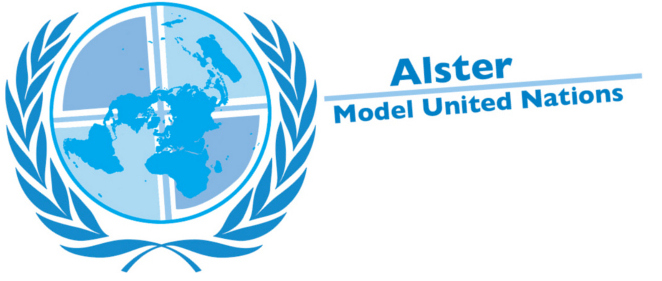In order to be able to follow and participate in this year’s AMUN’s debates, you should prepare in the best possible way.
By following the guide below, you will know what your country’s stances on the specific issues are.
When starting research for your role as a delegate, the first thing you need to understand is that it is unlikely a successful strategy to search directly for your country’s opinion on a specific issue. Avoid googling “Nicaragua’s position on human rights in the Chechen Republic”, but rather follow the guide below.
Position Paper
You are expected to write a position paper and hand it in two weeks prior to the conference. This sample might help you structuring your position paper.
The position paper will help you to form and structure your arguments and form an opinion on specific points that might arise during the conference.
How to prepare
1.Research your country
- Research your country in general: Read newspaper articles and the Wikipedia article.
- The CIA World Factbook provides you with economical, societal and political facts about your country. By reading the respective articles/sections, it helps you to form a general sense of your country.
- In the list of UN Member States you can find the official UN website of your country. Here you can access statements and speeches made by your country’s representatives on specific issues and form an opinion of the country’s relations to the UN and it’s intentions.
2. Research your topics
- Search for newspaper articles about your topic and read (if existent) e.g. the Wikipedia article.
- Try to obtain knowledge about the issue through rather objective sources.
- Research topics, specific nations, treaties, conventions, declarations or UN Missions connected to the issue in the UN Digital Library.
- Research information provided by NGOs/IGOs and affected nation’s.
3. Derive your country’s opinion
- Collect statements made by your country’s representatives and organs (→ Following an election, a country’s stances on certain issues might change!) on your topic and try to find the specific points that are important to focus on (This might also help you to focus on your relevant concerns when working on resolutions).
- If your country’s opinion is not clearly explained through policy statements from official sources, try to connect what you know about your country with specific information about the issue and try to form an opinion.
→ Questions to ask yourself that might help: What is the problem and why is it important for your country?; What are the stances of your country on the problem area in general?; What would be good for your country?; Are there any (recent) efforts on the issue?
